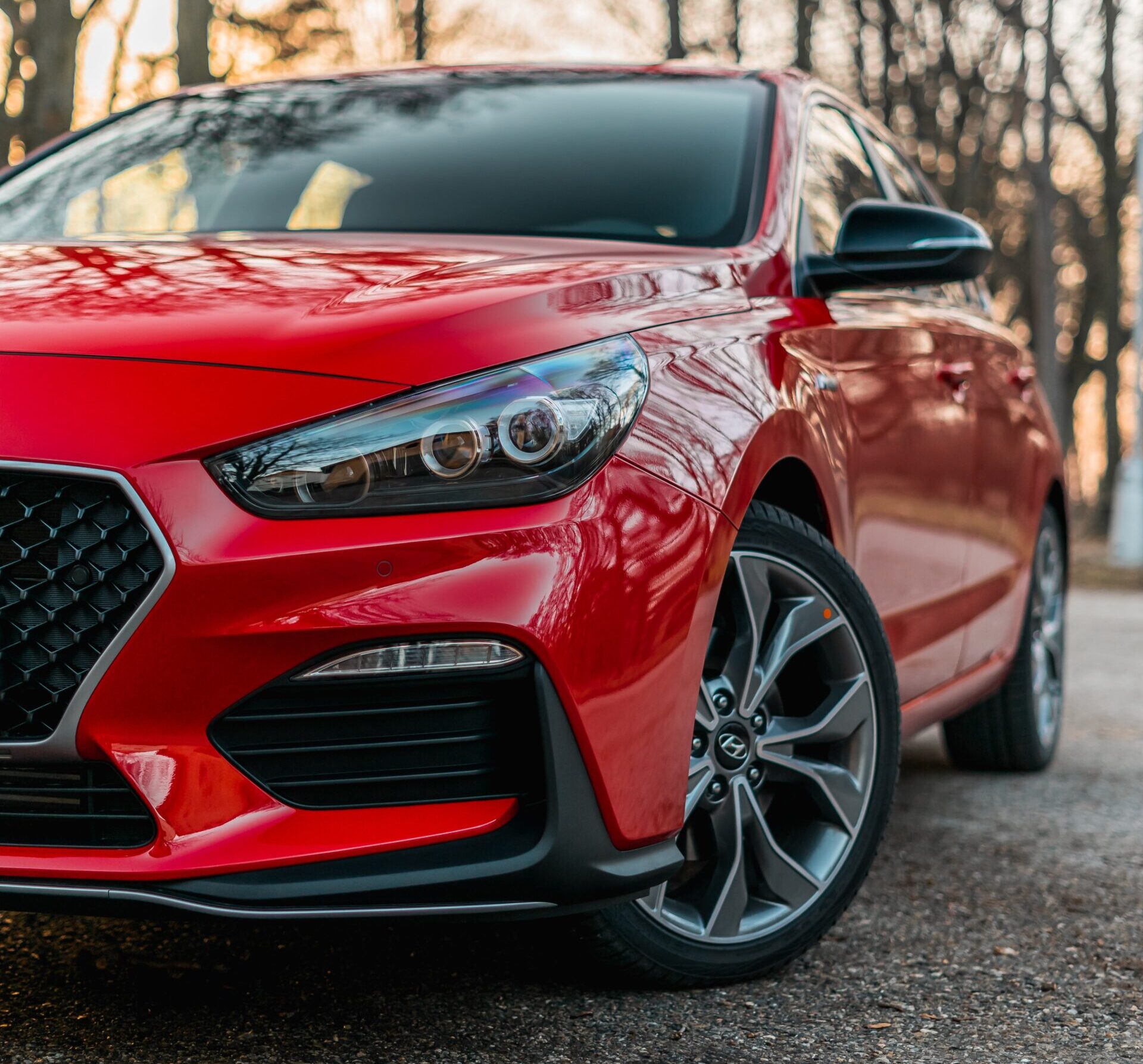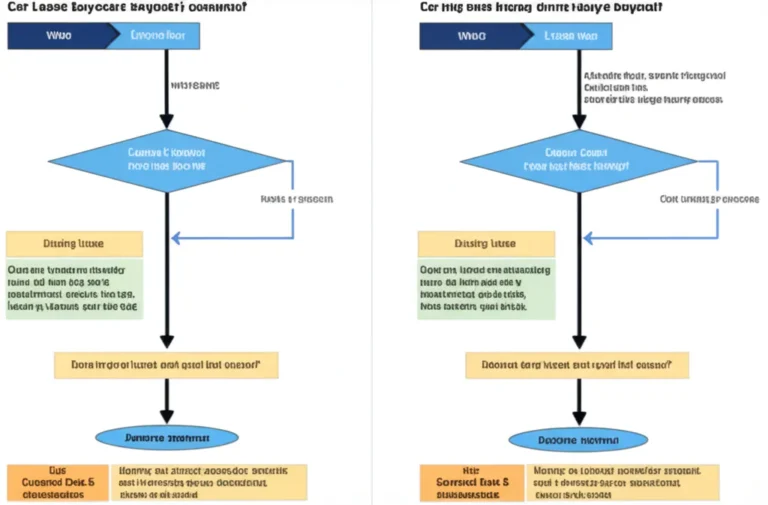Support our educational content for free when you purchase through links on our site. Learn more
Residual Value Car Lease Secrets: 10 Tips to Maximize Your Equity 🚗 (2025)
Leasing a car can feel like navigating a maze blindfolded—especially when terms like residual value start flying around. But here’s a little secret from the Car Leases™ garage: understanding residual value isn’t just for finance geeks; it’s your golden ticket to scoring better lease deals, lower monthly payments, and even cashing in on lease equity when your term ends. Did you know that some savvy lessees have turned their lease-end residual value knowledge into hundreds, sometimes thousands, of dollars saved or earned? Intrigued? You should be.
In this comprehensive guide, we’ll unravel everything you need to know about residual value car leases—from how residual values are calculated, why they matter more than you think, to insider tips on using lease equity to your advantage. We’ll also break down the difference between residual value and depreciation, reveal which cars hold their value best, and walk you through a step-by-step example of calculating residual value. Ready to become a lease ninja? Let’s dive in!
Key Takeaways
- Residual value determines your monthly lease payments and buyout price—higher residual values usually mean lower payments.
- Lease equity can be a hidden treasure if your car’s market value exceeds its residual value at lease-end.
- Not all cars are created equal: some models hold their value better, giving you a leg up on lease deals.
- Understanding residual value helps you negotiate smarter and plan your lease-end options confidently.
- Residual value is set by leasing companies and generally non-negotiable, but other lease terms can be.
Ready to shop smart? Check out our latest lease deals on top brands like Toyota, Honda, and Tesla to find vehicles with strong residual values!
Table of Contents
- ⚡️ Quick Tips and Facts About Residual Value Car Leases
- 🔍 Understanding Residual Value: The Backbone of Your Car Lease
- 📜 The Evolution of Residual Values in Car Leasing: A Brief History
- 💡 What Exactly Is a Car’s Residual Value in a Lease?
- 📊 7 Key Facts About Residual Value That Every Leaser Should Know
- 🧮 How to Calculate Residual Value on Your Car Lease: Step-by-Step Example
- 🔄 Lease Equity Explained: How Residual Value Can Work in Your Favor
- 🚗 How Residual Value Affects Your Monthly Lease Payments and Total Cost
- ⚖️ Residual Value vs. Depreciation: What’s the Difference and Why It Matters
- 🛠️ Factors That Influence Residual Value: From Make and Model to Market Trends
- 🔍 How Leasing Companies Determine Residual Values: Insider Insights
- 💥 High vs. Low Residual Value Cars: Which Lease Deals Are Better?
- 🔄 What Happens at Lease-End? Using Residual Value to Decide Your Next Move
- 🚙 Ready to Trade-In or Lease a New Vehicle? How Residual Value Guides Your Decision
- 💬 Common Questions About Residual Value Car Leases Answered
- 🔗 Recommended Links for Deep Dives on Residual Value and Leasing
- 📚 Reference Links and Resources
- 🎯 Conclusion: Mastering Residual Value to Score the Best Car Lease Deals
Quick Tips and Facts About Residual Value Car Leases
To understand residual value car leases, it’s essential to start with the basics. As explained in our car lease guide, residual value is a critical component of car leasing. Visit our Car Lease Basics section for more information on how leasing works.
Here are some key facts about residual value:
- Residual value is the estimated worth of a vehicle at the end of its lease term.
- It significantly affects your monthly lease payments, with higher residual values generally leading to lower payments.
- The residual value is determined by the leasing company at the beginning of the lease contract, often based on the vehicle’s MSRP and expected depreciation.
- Factors such as vehicle make, model, mileage, condition, and market demand influence residual value.
- Understanding residual value is crucial for negotiating lease terms and making informed decisions about which vehicles to lease.
For a deeper dive into residual value and its impact on leasing, consider exploring Latest Car Lease Deals or Electric Vehicle Leases for specific examples and trends.
Understanding Residual Value: The Backbone of Your Car Lease
Residual value is essentially the backbone of your car lease, as it determines the monthly payments and the buyout price at the end of the lease. According to Experian, understanding residual value can put you in a good negotiating position, whether you decide to buy your car, sell it, or use it as leverage for your next lease or purchase.
To calculate residual value, leasing companies typically use a percentage of the vehicle’s MSRP. For example, if a car has an MSRP of $40,000 and the residual value percentage is 50%, the residual value would be $20,000. This value is then used to calculate your monthly lease payments, with the difference between the vehicle’s initial price and its residual value being the amount you finance over the lease term.
The Evolution of Residual Values in Car Leasing: A Brief History

The concept of residual value in car leasing has evolved over time, influenced by factors such as market trends, economic conditions, and technological advancements. Historically, residual values were more predictable, with certain brands and models consistently holding their value better than others. However, with the rise of electric and hybrid vehicles, the residual value landscape has become more complex.
As noted by LHM Auto, the residual value is the estimated worth of your car at the end of your lease term. It’s a crucial factor in determining your monthly lease payment, with higher residual values leading to lower monthly payments. Factors such as make and model, vehicle condition, and market demand all play a role in determining residual value.
What Exactly Is a Car’s Residual Value in a Lease?
A car’s residual value in a lease is the estimated value of the vehicle at the end of the lease term. It’s a critical component of the lease agreement, as it affects the monthly payments and the buyout price. As RefiJet explains, residual value is calculated as a percentage of the vehicle’s MSRP, typically between 50% and 60%.
To illustrate this, consider a vehicle with an MSRP of $40,000 and a residual value percentage of 55%. The residual value would be $22,000, which is the estimated worth of the vehicle at the end of the lease term.
7 Key Facts About Residual Value That Every Leaser Should Know
Here are seven key facts about residual value that every leaser should know:
- Residual Value Affects Monthly Payments: A higher residual value generally leads to lower monthly lease payments.
- Residual Value is Based on MSRP: The residual value is calculated as a percentage of the vehicle’s MSRP, not the negotiated selling price.
- Factors Influence Residual Value: Vehicle make, model, mileage, condition, and market demand all impact residual value.
- Residual Value Determines Buyout Price: The residual value is often the price at which you can purchase the vehicle at the end of the lease.
- Leasing Companies Determine Residual Value: Leasing companies set the residual value at the beginning of the lease contract.
- Residual Value Can Vary: Residual values can vary significantly between different vehicles and leasing companies.
- Understanding Residual Value is Crucial: Knowing the residual value can help you make informed decisions about which vehicles to lease and how to negotiate lease terms.
For more information on residual value and its impact on leasing, visit our Auto Financing Options section.
How to Calculate Residual Value on Your Car Lease: Step-by-Step Example
Calculating residual value involves determining the estimated worth of the vehicle at the end of the lease term. Here’s a step-by-step example:
- Determine the vehicle’s MSRP.
- Determine the residual value percentage (typically between 50% and 60%).
- Calculate the residual value by multiplying the MSRP by the residual value percentage.
For example, if the vehicle’s MSRP is $40,000 and the residual value percentage is 55%, the residual value would be: $40,000 x 0.55 = $22,000
This means that the estimated worth of the vehicle at the end of the lease term is $22,000.
Lease Equity Explained: How Residual Value Can Work in Your Favor
Lease equity refers to the difference between the vehicle’s current trade-in value and its residual value. If the trade-in value is higher than the residual value, you have positive equity, which can be used to your advantage. As Experian notes, finding equity at the end of your car lease can put you in a good negotiating position.
There are several options for using lease equity, including:
- Buying the car yourself at the residual value.
- Selling the car to a third-party dealer or an approved dealer.
- Using the equity as a down payment for your next lease or purchase.
How Residual Value Affects Your Monthly Lease Payments and Total Cost
Residual value plays a significant role in determining your monthly lease payments and the total cost of the lease. A higher residual value generally leads to lower monthly payments, as you’re financing a smaller amount over the lease term.
However, it’s essential to consider the total cost of the lease, including any fees and charges. As LHM Auto explains, the residual value is the estimated worth of your car at the end of your lease term, and it’s a crucial factor in determining your monthly lease payment.
Residual Value vs. Depreciation: What’s the Difference and Why It Matters
Residual value and depreciation are related but distinct concepts. Depreciation refers to the decrease in value of the vehicle over time, while residual value is the estimated worth of the vehicle at the end of the lease term.
Understanding the difference between residual value and depreciation is crucial, as it can impact your lease payments and the total cost of the lease. As RefiJet notes, a higher residual value generally means lower monthly payments, but it can also result in a higher buyout price.
Factors That Influence Residual Value: From Make and Model to Market Trends
Several factors influence residual value, including:
- Make and Model: Certain brands and models hold their value better than others.
- Vehicle Condition: Wear and tear, mileage, and maintenance history impact residual value.
- Market Demand: Popular vehicles with high demand tend to have stronger residual values.
- Lease Term and Mileage Allowance: Longer lease terms and higher mileage allowances can decrease residual value.
- Economic Conditions: The overall economy can influence used car prices.
How Leasing Companies Determine Residual Values: Insider Insights
Leasing companies determine residual values using a combination of industry guides, predictive modeling, and market research. They consider factors such as historical data, market trends, and vehicle characteristics to estimate the residual value.
As Experian explains, understanding how leasing companies determine residual values can help you make informed decisions about which vehicles to lease and how to negotiate lease terms.
High vs. Low Residual Value Cars: Which Lease Deals Are Better?
The choice between high and low residual value cars depends on your individual needs and preferences. High residual value cars may offer lower monthly payments, but they can also result in a higher buyout price.
On the other hand, low residual value cars may have higher monthly payments, but they can also provide more flexibility at the end of the lease. As LHM Auto notes, the residual value is the estimated worth of your car at the end of your lease term, and it’s a crucial factor in determining your monthly lease payment.
What Happens at Lease-End? Using Residual Value to Decide Your Next Move
At the end of the lease, you have several options, including:
- Returning the vehicle to the leasing company.
- Purchasing the vehicle at the residual value.
- Extending the lease term.
- Using the equity as a down payment for your next lease or purchase.
As RefiJet explains, understanding residual value and lease equity can help you make informed decisions about your next move.
Ready to Trade-In or Lease a New Vehicle? How Residual Value Guides Your Decision
When considering trading in or leasing a new vehicle, residual value plays a significant role in guiding your decision. As Experian notes, finding equity at the end of your car lease can put you in a good negotiating position.
Consider exploring Credit Score and Car Leasing for more information on how your credit score can impact your leasing options.
Common Questions About Residual Value Car Leases Answered
Here are some common questions about residual value car leases answered:
- What is residual value?: The estimated worth of a vehicle at the end of the lease term.
- How is residual value calculated?: As a percentage of the vehicle’s MSRP.
- What factors influence residual value?: Make and model, vehicle condition, market demand, lease term, and mileage allowance.
- Can I negotiate residual value?: Yes, understanding residual value can help you negotiate lease terms.
For more information on residual value and car leasing, visit our Car Lease Basics section.
Recommended Links for Deep Dives on Residual Value and Leasing
For a deeper dive into residual value and leasing, consider exploring the following links:
You can also check out the first YouTube video on the topic, which provides a comprehensive guide to leasing and residual value.
The video “Don’t Get SCREWED on a Car Lease | 3 GOLDEN RULES to Negotiate a Car Lease” by CarEdge is a great resource for understanding the ins and outs of car leasing. You can find more information on their website: https://caredge.com/guides/leasing-a-car-in-2023
👉 CHECK PRICE on:
Note: The links provided are for informational purposes only and do not constitute an endorsement or recommendation.
Conclusion: Mastering Residual Value to Score the Best Car Lease Deals

So, what’s the final word on residual value in car leases? Simply put, residual value is the secret sauce that can make or break your lease deal. It directly impacts your monthly payments, your options at lease-end, and even your potential equity.
From our deep dive, here’s the gist:
✅ High residual values = lower monthly payments but higher buyout prices
✅ Low residual values = higher monthly payments but potentially more flexibility at lease-end
✅ Knowing your car’s residual value empowers you to negotiate smarter and plan your next move
We’ve seen how savvy lessees can leverage positive lease equity—when the car’s market value exceeds its residual value—to either buy the car at a bargain, trade it in for a new lease, or even pocket some cash by selling to third-party dealers like Carvana or CarMax. This is especially relevant in today’s market, where used car values have been historically high, but may soften soon.
If you’re hunting for the best lease deals, focus on vehicles known for strong residual values—think Toyota Tacoma, Honda CR-V, or Tesla Model 3. These models tend to hold their value well, translating into more favorable lease terms. But remember, residual value is just one piece of the puzzle—mileage limits, lease duration, and your credit score also play starring roles.
In short: master residual value, and you’re well on your way to leasing success. Don’t just sign on the dotted line—arm yourself with knowledge, crunch the numbers, and negotiate like a pro. Your wallet will thank you!
Recommended Links for Shopping and Research
👉 Shop Popular Brands with Strong Residual Values:
- Toyota: Toyota Official Website | TrueCar Toyota Deals | Edmunds Toyota Lease Deals
- Honda: Honda Official Website | TrueCar Honda Deals | Edmunds Honda Lease Deals
- Ford: Ford Official Website | TrueCar Ford Deals | Edmunds Ford Lease Deals
- Tesla: Tesla Official Website | TrueCar Tesla Deals | Edmunds Tesla Lease Deals
Find Used Car Values and Lease Buyout Financing:
FAQ

What is residual value in a car lease?
Residual value is the estimated worth of the vehicle at the end of your lease term, set by the leasing company at lease inception. It’s usually expressed as a percentage of the car’s MSRP (Manufacturer’s Suggested Retail Price). This figure is crucial because it determines your monthly lease payments and the price you’d pay if you decide to buy the car at lease-end.
Read more about “Lease-End Buyout vs Early Buyout: 9 Secrets to Save Big in 2025 🚗”
How does residual value affect my monthly lease payments?
Your monthly payments are largely based on the difference between the vehicle’s initial price (capitalized cost) and its residual value. A higher residual value means you’re financing less depreciation, so your monthly payments will be lower. Conversely, a lower residual value means you’re paying for more depreciation, resulting in higher monthly payments.
Read more about “Tesla Model 3 Lease Price (2025): 7 Insider Secrets to Save Big ⚡️”
Can I negotiate the residual value on a car lease?
Generally, no. Residual values are set by the leasing company or financial institution based on industry guides and predictive models. They are typically non-negotiable because they reflect expected depreciation and market conditions. However, you can negotiate other lease terms like the capitalized cost (selling price), money factor (interest rate), and fees to improve your deal.
Read more about “What Month Is the Best to Lease a Car? 🚗 11 Insider Tips for 2025”
What happens if my car’s residual value is lower than expected?
If the residual value is lower than the car’s actual market value at lease-end, you have positive equity. This means you could buy the car at a bargain or trade it in for a better deal on your next vehicle. If the residual value is higher than market value, you have negative equity, which might make buying the car less attractive and could limit your options.
How do I find the residual value of a leased car?
Your lease contract explicitly states the residual value. If you can’t locate it, contact your leasing company or check your lease-end paperwork. You can also estimate it by multiplying the MSRP by the residual percentage listed in your contract.
Read more about “Early Lease Buyout Pros & Cons: 14 Must-Know Facts for 2025 🚗”
Does a higher residual value mean better lease deals?
Not always. While a higher residual value lowers your monthly payments, it also means a higher buyout price if you want to purchase the car at lease-end. The best lease deal balances a favorable residual value with other factors like mileage allowance, lease term, and your personal needs.
Read more about “Can I Negotiate the Terms of a Car Lease? 12 Expert Tips (2025) 🚗”
Can I buy my leased car at the residual value when the lease ends?
Yes, the residual value usually represents the buyout price—the amount you pay to purchase the car at lease-end. However, be aware that additional fees or taxes may apply. Buying your leased car can be a smart move if the car’s market value exceeds the residual value, giving you equity.
Read more about “Master the Car Lease Buyout Process: 10 Expert Tips You Need in 2025 🚗”
Reference Links and Resources
- LHM Auto: What Is the Residual Value of My Lease?
- RefiJet: Car Lease Value Based on MSRP or Sales Price
- Experian: How to Use the Equity at the End of Your Leased Car
- Toyota Official Site
- Honda Official Site
- Ford Official Site
- Tesla Official Site
- Carvana
- CarMax
- RefiJet Lease Buyout Financing
With these insights, you’re now equipped to navigate the world of residual value car leases like a seasoned pro. Ready to put this knowledge to work? Happy leasing! 🚗💨





